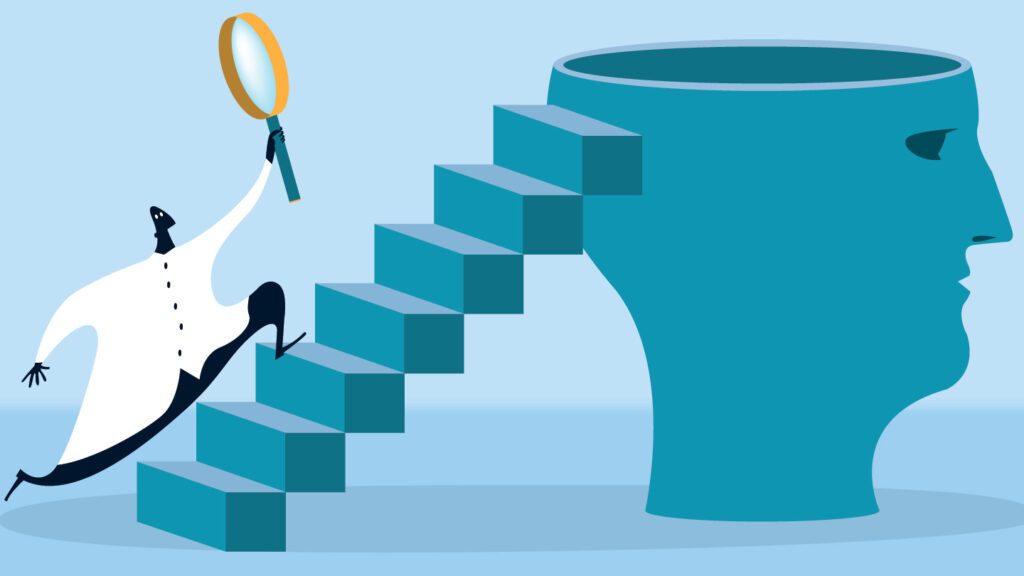
Intellectual humility is a mindset that guides our intellectual conduct. It makes us aware that we do not have all the answers and that our beliefs and viewpoints may be imperfect. Many people lack this understanding of ‘knowing what they don’t know’, which can lead to poor decisions and disharmony in their relationships. Discover the benefits and the key steps to fostering intellectual humility in ourselves and others so that we can engage with the world from a place of openness, empathy, and curiosity. (Estimated reading time: 10 minutes)
“The only true wisdom is in knowing you know nothing.”
– Socrates
Have you ever experienced frustration when dealing with someone who refuses to change their stance, even when proven wrong? If you have used social media, you have probably encountered this situation more frequently than you would like. Reflect on the feeling of frustration that arises in such moments.
Now, think about the last time you acknowledged being mistaken about something significant. When was the last time you altered your viewpoint on a matter closely tied to your identity, like a spiritual belief, political stance, or life goals? Recall what that felt like.
Engaging in this process can be difficult, and it is not something we do often. However, it is typically worthwhile because we gain a much-needed perspective on our blind spots.
This attitude leads to innovation and progress. We see this in scientists willing to poke holes into their hypotheses or in the art maestro who is open to receiving feedback from their mentors. These exemplars knew that a vital component of genius is not falling for the delusion that they had it all figured out, even if they were above average and naturally gifted. They embraced a beginner’s mindset.
Embracing a beginner’s mindset means viewing the world with the eyes of one. The term originates from the Japanese word Shoshin, which is rooted in Zen Buddhism. It means approaching each circumstance as if encountering it for the very first time.
In his book “Zen Mind, Beginner’s Mind”, the late Shunryu Suzuki delved into the essence of Shoshin. “If your mind is empty … It is open to everything. In the beginner’s mind there are many possibilities, but in the expert’s mind there are few.”
A beginner’s mindset is the hallmark of someone who embodies intellectual humility. Cultivating this outlook is even harder for those with knowledge or extensive experience in a particular subject. Yet, the people we admire the most exemplify intellectual humility.
Former U.S. President John F. Kennedy was keenly aware that nothing great could be done alone, and measurable progress was possible through collaboration. He also knew that there was value in thinking differently because it led to breakthroughs.
During the Cuban Missile Crisis in 1962, when the world was on the brink of nuclear war, Kennedy tempered his impulses to retaliate against the Soviet Union and instead received counsel from a group of specialists known as the Executive Committee of the National Security Council (ExComm), an establishment authorized to streamline decision-making processes during the crisis.
That same year, President Kennedy delivered a historic Commencement address at Yale University, in which he spoke to the importance of intellectual humility: “Too often, we hold fast to the cliches of our forebears. We subject all facts to a prefabricated set of interpretations. We enjoy the comfort of opinion without the discomfort of thought.”
In a world that tends to prioritize confidence and certainty, intellectual humility holds immense power. True wisdom does not reside in inflexible certainty but rather in our capacity to acknowledge and embrace our own fallibility. Nurturing intellectual humility can open pathways to genuine wisdom and personal transformation.
What is intellectual humility?

Intellectual humility involves acknowledging and embracing our limitations and fallibility. It’s a mindset that guides our intellectual conduct and signifies an awareness that we do not possess all the answers and that our beliefs and viewpoints may be imperfect.
Philosophers have long explored the limits of human knowledge. Michel de Montaigne, a French philosopher from the 16th century known for inventing the essay, once stated that “the plague of man is boasting of his knowledge.”
Knowing what you don’t know empowers us to engage with knowledge, keep an open mind, and be willing to explore diverse perspectives and concepts.
Despite its advantages, humility is often viewed negatively. There are misconceptions about intellectual humility, so it is crucial to debunk certain myths.
Firstly, intellectual humility is not indicative of weakness or ignorance but is a virtue that fosters personal growth and broadens our understanding.
Secondly, intellectual humility does not equate to lacking conviction; one can firmly believe in something until one’s perspective changes.
Thirdly, it does not imply being indecisive; we must set a high standard for the evidence needed to alter our viewpoint.
Lastly, humility does not equate to self-deprecation or constant concurrence with others. As social psychologist Daryl R. Van Tongeren says, “It’s being the right size, not too small.”
The link between intellectual humility and wisdom
True wisdom does not reside in unwavering certainty but rather in the capacity to acknowledge and embrace our fallibility. The bedrock of wisdom is intellectual humility.
By approaching knowledge with humility, we are more inclined to engage in critical thinking and objectively assess information. We’re receptive to challenging our own assumptions and beliefs, making it easier to get a holistic perspective of the world.
Albert Einstein suggested that the more you know, the more humble you become. Socrates famously stated, “The only true wisdom is in knowing you know nothing. These observations reveal a consistent theme.
Through humility, we acknowledge our limited understanding. This realization sparks curiosity, leading us to ask questions and seek knowledge.
As we continue to learn and apply what we learn, we enhance our abilities to navigate life effectively. This is the essence of wisdom—understanding how to shape the lives we desire for ourselves, our loved ones, and our societies. Over time, we develop a habit of continuous expansion. We intentionally empty our minds to make room for new knowledge and improvement.
Wisdom does not mean that we have all the answers, only that we are willing to pose the right questions to widen our perceptual lens. Intellectual humility empowers us to ask those questions and pursue the truth, even if it requires admitting that we may be mistaken.
Through this process of inquiry and exploration, we can unearth fresh insights and perspectives, leading to a broader and wiser understanding of the intricacies of life.
Overcoming intellectual arrogance and biases

Intellectual arrogance and biases can impede our capacity to embrace intellectual modesty. Hubris often arises from a fear of making mistakes or appearing uninformed. It obstructs our vision of novel information and viewpoints and impedes our ability to acknowledge limitations.
There have been countless individuals throughout history whose hubris has led to their downfalls.
- Julius Caesar: The Roman dictator’s increasing arrogance and disregard for the Senate’s authority resulted in his assassination by a group of senators in 44 BC.
- Adolf Hitler: The Nazi leader’s extreme arrogance and unwavering belief in his own superiority resulted in disastrous military decisions and, ultimately, his suicide in 1945.
- Louis XVI of France: The final king of France’s arrogance and unwillingness to listen to his people contributed to the French Revolution, which ultimately led to his execution by guillotine in 1793.
- Napoleon Bonaparte: Napoleon’s arrogance and self-importance led to his defeat in the disastrous Russian campaign of 1812 and eventual exile to the island of Saint Helena.
We’re also prone to a bias called The Dunning-Kruger effect, where people tend to overestimate their own knowledge and skills. This can result in poor decision-making, a lack of trust among peers, and potentially hostile work environments.
For example, an amateur chess player may exhibit the Dunning-Kruger effect by overestimating their abilities in an upcoming chess tournament compared to more skilled players.
Conquering intellectual arrogance requires a shift in mindset—a realization that being incorrect or uncertain is not a sign of weakness but an opportunity for personal development.
Critical thinking and actively challenging our presumptions are crucial to overcoming biases. We must be willing to objectively examine the evidence and consider alternative perspectives. This necessitates having an open mind and being ready to abandon preconceived notions.
By actively seeking out diverse perspectives and engaging in respectful discourse, we can overcome our biases and foster intellectual humility.
The benefits of cultivating intellectual humility
True wisdom lies not in rigid certainty, but in the ability to recognize and accept our fallibility. Here are the different ways that intellectual humility can benefit us and enhance our lives:
1. It fosters personal growth
Embracing intellectual humility is essential for personal growth because we become receptive to new information and ideas. We’re willing to challenge our beliefs and biases, actively seeking alternative views. This approach creates opportunities for learning, expands our horizons, and deepens our understanding of the world.
We also increase our capacity to embrace constructive criticism and feedback. Instead of reacting defensively or dismissing opposing viewpoints, we approach them with curiosity and a thirst for knowledge. This growth-driven mindset helps us overcome our limitations and be better equipped to adapt and grow.
2. We can access deeper thought through self-reflection
Practicing self-reflection is an effective method for cultivating intellectual humility. It involves stepping back and examining our thoughts, beliefs, and biases. Through regular self-reflection, we can better understand our challenges and how our biases may impact our thinking.
Journaling is one way to engage in self-reflection. By writing down our thoughts and reflecting on them, we can better understand them. This process helps us identify areas where we may be close-minded or resistant to new ideas. Through this practice, we can challenge our assumptions and develop humility.
3. It fosters open-mindedness

Developing intellectual humility is crucial for fostering open-mindedness. When we’re open, we become more receptive to new information. We’re willing to consider what others have to say and engage in respectful dialogue. This open-mindedness allows us to overcome rigidity, expand our understanding, and challenge our beliefs.
Open-mindedness is essential for the development of critical thinking skills. We can evaluate information and make informed decisions objectively. With an open mind, we can create a space for curiosity and exploration, which allows us to discover new insights.
4. It improves relationships and communication
Intellectual humility extends beyond personal development and is a crucial ingredient in relationships and communication. Adopting a humble mindset during conversations enhances our abilities to actively listen and participate in meaningful dialogue. This mindset makes us receptive to understanding others and their positions, even if it’s different from our own.
By shedding the burden of arrogance, we can establish trust and respect in our relationships. Embracing intellectual humility in our interactions infuses empathy and opens the door for forging stronger connections and productive conversations.
How to develop and foster intellectual humility
Developing intellectual humility is an ongoing journey that necessitates conscious effort. Here are a few practical suggestions to cultivate this mindset:
1. Actively pursue diverse perspectives: Engage in conversations and interactions with individuals who possess contrasting beliefs and viewpoints. Listen attentively and try to understand their perspectives without passing judgment.
2. Become an active listener: When participating in discussions, prioritize listening over speaking. Truly absorb what others say and inquire further to gain a deeper understanding.
3. Challenge your own assumptions: Regularly question your convictions and biases. Ask yourself why you hold certain beliefs and contemplate alternative viewpoints.
4. Learn from your mistakes: Embrace failure as an opportunity for personal growth. Reflect on your errors and extract valuable lessons rather than perceive them as personal shortcomings.
5. Embrace feedback: Seek input from others and be open to accepting criticism. Utilize feedback as a tool for self-improvement and individual development.
If you’re in a leadership position, you can cultivate an environment that values open-mindedness and critical thinking while promoting intellectual humility. Here are several strategies that can help achieve this goal:
- Promote a culture that embraces diverse perspectives by incorporating a wide range of voices and viewpoints in discussions and materials. This exposure to different ideas encourages individuals to consider alternative perspectives.
- Establish an atmosphere of respectful dialogue where individuals feel safe to engage in meaningful conversations and debate. Teach and exemplify the significance of active listening and respectful communication.
- Focus on the learning process rather than on finding the correct answer. Encourage individuals to ask questions, seek information, and challenge their own assumptions to foster growth and development.
- Demonstrate intellectual humility as a leader in both business and educational settings. Show willingness to learn from employees or students and be willing to admit when you may not have all the answers.
The human mind possesses incredible capabilities and strength. However, to fully utilize its potential, it is crucial to understand its limitations and learn how to navigate around them. Counterintuitively, our arrogance can hinder us by restricting our mind’s ability to delve deeper. By cultivating intellectual humility, you can liberate yourself from the shackles of ignorance, biases, and dogma.
All my best on your journey,
Seline

Questions for you: What does intellectual humility look like to you? Is it something that comes naturally, and how can you embody it more in your everyday life?
Did you like this post? Sign up below, and I’ll send you more awesome posts like this

Have Your Say